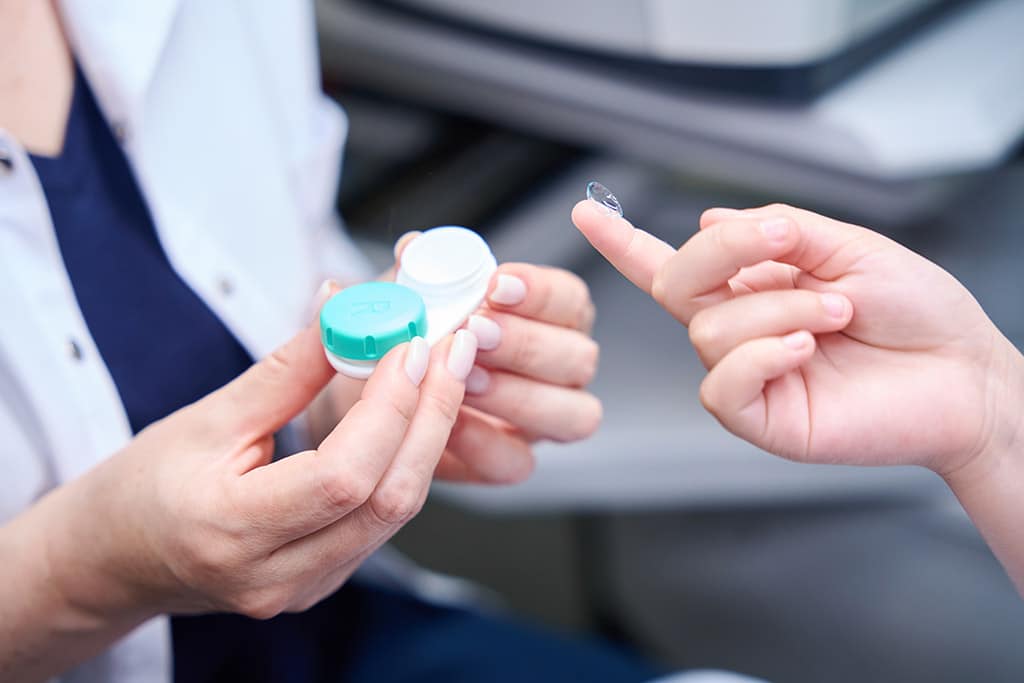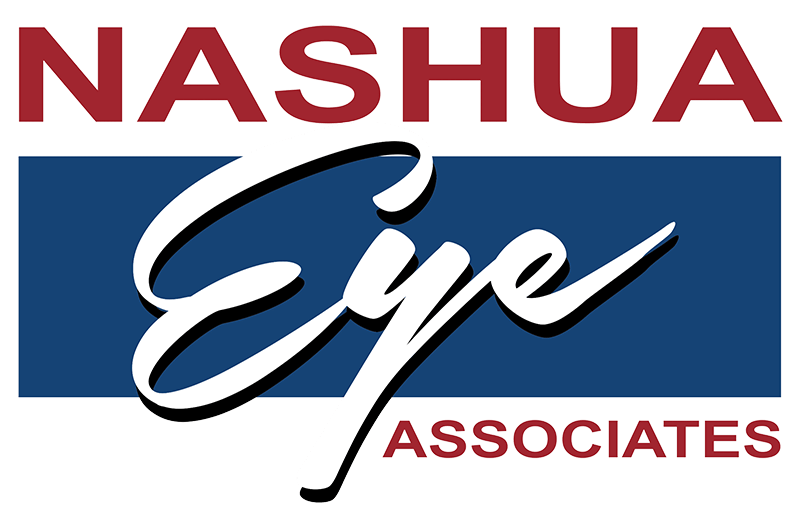Home » Services » Contact Lenses » Specialty Contact Lenses
Specialty Contact Lenses
Specialty Contact Lenses
Nashua Eye offers specialty contact lenses to treat a wide ranging group of ocular diseases, from keratoconus to advanced dry eye. The optometrists in our contact lens department have specialty training in the fitting of scleral lenses. Specialty contact lens fitting is a more involved process than the fitting of a regular soft contact lens. A scleral lens has multiple variables to customize to a patient’s eye anatomy and diagnosis.
Specialty lenses are most commonly used to treat a cornea disease called keratoconus. In keratoconus, a patient’s cornea, the front clear window to the eye, slowly thins and steepens. Some patients who have keratoconus benefit from a treatment to slow the disease process called corneal collagen cross-linking. Additionally, many keratoconus patients can maximize their vision with a scleral specialty contact lens.
Scleral lenses have a wide diameter. The base of the lens sits on the sclera, or white part of the eye. Light meets the eye at the center of the smooth round contact lens. The optical interface of light meeting a smooth, round scleral lens allows for superior vision compared to light meeting an irregularly shaped diseased cornea.
As a result, patients with diseased corneas, such as keratoconus patients, can achieve better vision with a scleral lens compared to glasses or traditional small diameter contact lenses. Additionally, the soft scleral lenses are more comfortable and better tolerated compared to older, rigid gas permeable lenses.
Another reason for specialty scleral lenses is to treat advanced dry eye. Patients with the rough, bumpy surface of an inflamed, dry cornea can achieve better optics and vision with a round, smooth scleral contact. Furthermore, dry eye symptoms of burning and foreign body pain can be improved with the masking effect of a wide diameter scleral contact lens.
If you have questions, or think you may benefit from a scleral contact lens, call to schedule an appointment with one of our specialty contact lens specialists.





